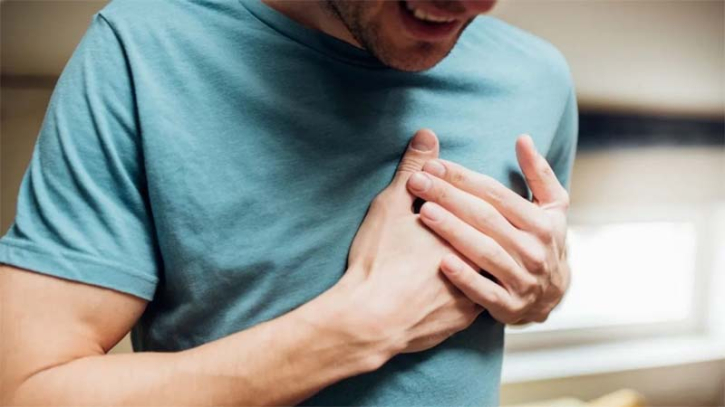Do You Know the Symptoms of a Heart Attack?

Do you sometimes feel discomfort and restlessness with gas pain? Have you noticed that the pain either slightly decreases with medication or doesn't go away at all? Often, this pain is not gas-related but could be heart pain, known as stable angina. Knowing the symptoms of a heart attack allows for quick medical intervention. However, heart attacks don't always present with premonitory signs.
Here are the key symptoms of a heart attack:
Chest Pain: The most common symptom of a heart attack is severe pain in the middle of the chest. The pain feels like pressure or being crushed by a heavy weight. Medically, this is referred to as 'central compressive chest pain'. The pain gradually intensifies and can be so severe that the patient may experience a fear of death. The chest pain can radiate to the neck, jaw, and left arm, a phenomenon known as 'radiating pain'. Some people may also experience back pain.
Excessive Sweating and Vomiting: Severe sweating and restlessness accompany chest pain. There may be palpitations or a racing heart. Nausea or vomiting along with intense chest pain are signs of a heart attack.
Shortness of Breath: After a heart attack, many people experience heart failure, leading to fluid accumulation in the lungs, abdomen, and legs. When excess fluid accumulates in the lungs, it can cause shortness of breath and coughing.
Loss of Consciousness: Reduced or obstructed blood flow to the heart can weaken it, causing many people to collapse or lose consciousness.
Irregular Heartbeat: A complication following a heart attack can be an irregular heartbeat. Those with an irregular pulse need immediate medical care to prevent severe consequences.
Most people experience a heart attack without any prior warning signs. Some may have minor symptoms that diminish with rest, known as stable angina. If the pain doesn't decrease with rest, it is termed unstable angina. Regardless of the type of heart attack, recognizing the symptoms quickly and getting to the nearest hospital is crucial. Early treatment can significantly reduce the risk of complications and death.
 (5).png)








